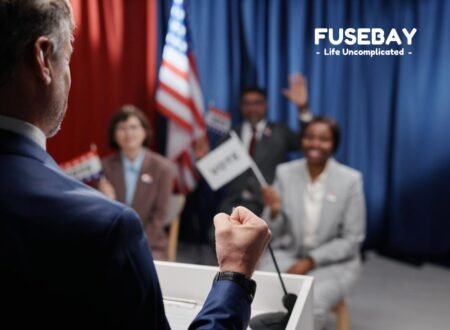Why TikTok Faces a Ban in the United States:
The potential ban on TikTok in the United States has become a focal point of discussions surrounding national security, data privacy, and technology regulation. With over 170 million U.S. users, the app’s influence on culture and commerce is undeniable. However, concerns over its Chinese ownership and potential data misuse have prompted legislative and political actions to restrict its operations. This article explores the key reasons why TikTok faces a ban in the United States, the implications of this move, and the potential outcomes for users and the global tech industry.
Understanding the Controversy: TikTok’s Rise and Scrutiny
TikTok has become one of the most influential platforms of the modern era, reshaping how people consume content. From viral dances to educational snippets, it has captivated audiences across age groups. Its algorithm’s ability to personalize content keeps users engaged, making it a powerful tool for both creators and advertisers.
However, this same success has drawn the attention of regulators and lawmakers, who question the intentions of TikTok’s parent company, ByteDance.
Concerns About Data Privacy and National Security
The U.S. government has repeatedly highlighted concerns about TikTok’s data collection practices. Critics worry that user data could be accessed by the Chinese government, citing China’s strict national security laws.
Key Issues in Focus:
- Extensive Data Collection: TikTok collects a wide range of user information, including location data, device metadata, and usage behavior. Experts warn that such data could be exploited for surveillance.
- Potential for Influence: TikTok’s recommendation algorithm has been criticized for potentially being manipulated to favor certain narratives or suppress dissenting viewpoints.
- Government-Mandated Compliance: China’s 2017 National Intelligence Law requires Chinese companies to cooperate with state intelligence agencies if requested, fueling fears that ByteDance could be compelled to share user data.

Legislative and Legal Responses
The April 2024 Law
In response to these concerns, Congress passed a law in April 2024 requiring ByteDance to divest TikTok’s U.S. operations by January 19, 2025. Failure to comply would result in the platform being banned across the country.
This legislation reflects a broader U.S. strategy to safeguard critical technology infrastructure and protect citizens’ privacy.
Court Rulings and Appeals
ByteDance has pursued legal avenues to challenge the legislation. In December 2024, a federal appeals court upheld the law, rejecting the argument that it violated constitutional protections such as the First Amendment.
However, ByteDance plans to escalate the case to the Supreme Court, arguing that the fears surrounding data misuse are speculative and that TikTok operates independently from the Chinese government.

Political Ramifications of the TikTok Ban
The debate over TikTok has bridged the partisan divide in Washington, with lawmakers from both sides expressing concerns about the platform. While the Biden administration has taken steps to enforce the ban, incoming President-elect Donald Trump’s views have shifted. Once a proponent of banning TikTok, Trump has recently voiced opposition to the legislation, suggesting he might intervene after his inauguration.
This unexpected turn of events adds uncertainty to TikTok’s future and underscores the app’s position as a political hot potato.
Economic Consequences of a Ban
Impact on Businesses
TikTok is more than just a social media platform; it is a thriving marketplace for advertisers, businesses, and creators. Banning it would have far-reaching economic implications:
- Advertising Losses: U.S. companies spend billions annually on TikTok advertising to engage its youthful user base. A ban would force them to seek alternative platforms, often at higher costs.
- Small Business Challenges: Many small businesses rely on TikTok’s affordability and reach to market their products. Losing this avenue could significantly impact their growth.
Creator Ecosystem
TikTok has revolutionized the influencer economy, offering creators an unprecedented opportunity to build audiences and monetize content. A ban would displace millions of creators, disrupting income streams and limiting career prospects in the social media industry.

Cultural Repercussions & Loss of Trend
TikTok has redefined entertainment, fostering creativity and community in unique ways. Its removal would leave a void in the digital landscape.
TikTok has been a breeding ground for trends in music, fashion, and even activism. Without it, competing platforms like Instagram Reels and YouTube Shorts might fill the gap, but none have matched TikTok’s unique engagement model.
TikTok’s algorithmic design connects users with niche communities, helping them bond over shared interests. A ban would disrupt these connections, leading to a fragmented online experience.
ByteDance’s Limited Options
To avoid a ban, ByteDance must act swiftly. The two most viable options include:
- Divesting U.S. Operations: Selling TikTok’s U.S. operations to a domestic company could address legislative concerns, but it would be a complex and costly process.
- Enhancing Transparency: ByteDance could establish localized data centers and implement independent oversight to alleviate fears about data access.
Both solutions face significant hurdles and may not fully resolve broader geopolitical tensions.
TikTok Regulation & Digital Sovereignty
The scrutiny TikTok faces in the United States is not unique. Countries like India have already banned the app, citing similar security concerns. The U.S. government’s actions could set a precedent for how other nations regulate foreign-owned tech companies.
Governments worldwide are increasingly emphasizing digital sovereignty, seeking to ensure that critical data remains within national borders. The TikTok controversy underscores the challenges of balancing innovation with security in an interconnected world.

What Happens If TikTok Is Banned?
The ramifications of a TikTok ban would be widespread, affecting not just its users but also the broader social media ecosystem.
For Users
Millions of Americans who use TikTok daily would lose access to a platform they rely on for entertainment, education, and connection.
For Competitors
Rival platforms like Instagram, YouTube, and Snapchat would likely see a surge in users, leading to intensified competition and innovation.
Conclusion
The debate over why TikTok faces a ban in the United States reflects the broader challenges of regulating foreign-owned technologies in an era of increasing digital interconnectedness. As the January 2025 deadline approaches, the stakes remain high for TikTok’s parent company, ByteDance, U.S. lawmakers, and millions of users. Whether the resolution involves divestment, regulatory measures, or an outright ban, the decision will set a precedent for the future of technology governance and data privacy worldwide.
Discover amazing information and unique finds on FuseBay! Don’t miss out—visit our website for exclusive articles and top-notch blogs tailored just for you!



